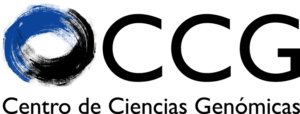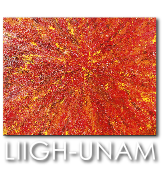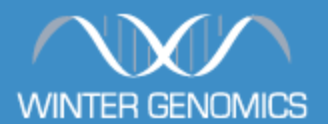Latin American R/BioConductor Developers Workshop 2018
Community of Bioinformatics Software Developers
-
Workshop webpage: https://comunidadbioinfo.github.io/post/r-bioconductor-developers-workshop-2018/
-
Level: intermediate - advanced
-
Language: english
-
When: July 30 - August 3, 2018
-
Where: Auditorium of the Center for Genomic Sciences, Cuernavaca, Mexico
-
Twitter: #CDSBMexico
-
Facebook: @CDSBMexico
-
GitHub: https://github.com/ComunidadBioInfo/R-BioConductor-Developers-Workshop-2018
Requirements
Requirements prior knowledge
- Participants should have basic knowledge of programming language R: variable assignment, reading files: read.csv, read.delim, read.table; data structures: matrix, dataframe, list; data types: character, numeric, factor, logical, etc; installation and use of packages.
- R: know how to install packages
- RStudio: know how to use.
Technical requirements
- Personal computer
- Minimum 8GB RAM, a mouse and sufficient disk space for text files and image files. Administrator privileges to install and run utilities such as RStudio.
Introduction
In recent years, biology has seen a rise in the use of technologies that enable high-throughput, quantitative, data-rich profiling of cellular states. As a result, the field now faces computational challenges to analyze such data. The R/ Bioconductor project is an open source, open development software platform that provides tools to translate complex data sets into biological knowledge.
This workshop is aimed at students and researchers interested in the analysis of biological data. We encourage applications from experts in diverse disciplines, including but not limited to biologists, bioinformaticians, data scientists, software engineers and programmers and R users at large. The main goals of the workshop are:
-
Teach participants the principles of reproducible data science through the development of R/Bioconductor packages.
-
Turn bioinformatics software users into bioinformatics software developers.
-
Foster the exchange of expertise and establish multidisciplinary collaborations.
-
Create a community of Latin American scientists committed to the development of software and computational pipelines for biological data analysis.
-
Help train bioinformatics instructors that can continue to grow in their local communities.
This workshop is part of a long-term project to create a community of developers from Latin America. We hope to hold regular meetings in the future (similar to BioC, EuroBioc and BioCAsia) where attendees present their own software contributions. To provide a welcoming environment please follow our code of conduct.
Program
| Day 1: July 30, 2018 | ||
|---|---|---|
| 09:00 - 10:00 | Inauguration in the main auditorium | |
| 10:00 - 10:30 | Keynote Lecture I: From learning to using to teaching to developing R | Leonardo Collado-Torres |
| 10:30 - 11:00 | Talk I: Example of Bioinformatics in Mexico | Daniel Piñero |
| 11:00 - 11:20 | Coffee break | |
| 11:20 - 12:20 | Creating a package | Alejandro Reyes |
| 12:20 - 12:40 | Break | |
| 12:40 - 14:00 | Version control with git and GitHub | Selene L. Fernandez-Valverde |
| 14:00 - 15:30 | Lunch break | |
| 15:30 - 16:15 | Open source software projects and collaborative development | Selene L. Fernandez-Valverde |
| 16:45 - 17:30 | Package documentation | Alejandro Reyes |
| 17:30 - | Welcome cocktail | |
| Day 2: July 31, 2018 | ||
| 9:00 - 10:00 | Keynote Lecture II | Martin Morgan |
| 10:00 - 10:30 | Talk II: Example of Bioinformatics in Mexico: Using R-Shiny in Agrobiodiversity | Alejandro Ponce-Mendoza |
| 10:30 - 11:00 | Coffee break | |
| 11:00 - 12:15 | Best practices for writing efficient functions | Martin Morgan |
| 12:15 - 13:45 | Bioconductor: core package, common objects and extending classes | Benilton de Sá Carvalho |
| 13:45 - 15:30 | Lunch break | |
| 15:30 - 17:30 | S4 - system for object oriented programming | Martin Morgan |
| 17:30 - 18:30 | Poster session | |
| Day 3: August 1, 2018 | ||
| 9:00 - 10:00 | Collaborative project organization and introduction | Daniela Ledezma-Tejeida |
| 10:00 - 10:30 | Vignette writing with markdown/BiocStyle | Benilton de Sá Carvalho |
| 10:30 - 10:50 | Coffee break/Event Photo (to be confirmed) | |
| 10:50 - 11:30 | Unit testing and R CMD check | Martin Morgan |
| 11:30 - 12:10 | Rcpp (Adding C/C++ code to R packages) | Benilton de Sá Carvalho |
| 12:10 - 12:30 | Break | |
| 12:30 - 14:00 | Debugging and Parallelization | Martin Morgan |
| 14:00 - 15:30 | Lunch break | |
| 15:30 - 17:30 | Working on a Collaborative Project | |
| Day 4: August 2, 2018 | ||
| 9:00 - 10:00 | Keynote Lecture IV | Benilton Carvalho |
| 10:00 - 10:30 | Talk III: RLadies Community Experience | Teresa Ortíz |
| 10:30 - 11:00 | Coffee break | |
| 11:00 - 14:00 | Working on a Collaborative Project | |
| 14:00 - 15:30 | Lunch break | |
| 15:30 - 17:30 | Working on a Collaborative Project | |
| Day 5: August 3, 2018 | ||
| 9:00 - 10:00 | Working on a Collaborative Project and recovery from La Palapa | |
| 10:00 - 10:30 | Working on a Collaborative Project | |
| 10:30 - 11:00 | Coffee break | |
| 11:00 - 11:30 | Working on a Collaborative Project | |
| 11:30 - 12:30 | Presentations of collaborative projects | |
| 12:30 - 13:00 | Closing remarks and community building |
Instructors:
-
Martin Morgan (Roswell Park Comprehensive Cancer Center, Buffalo, USA)
-
Benilton Carvalho (University of Campinas, Campinas, Brazil)
-
Selene L. Fernandez-Valverde (National Laboratory of Genomics for Biodiversity, Irapuato, Mexico)
Organizing committee:
-
Heladia Salgado (Center for Genomic Sciences, Cuernavaca, Mexico)
-
Leonardo Collado-Torres (Lieber Institute for Brain Development, Baltimore, USA)
-
Alejandra Medina-Rivera (International Laboratory for Human Genome Research, Juriquilla, Mexico)
-
Alejandro Reyes (Dana-Farber Cancer Institute, Boston, USA)
-
Delfino García (Center for Genomic Sciences, Cuernavaca, Mexico)
-
Daniela Ledezma-Tejeida (Center for Genomic Sciences, Cuernavaca, Mexico)
-
Laura Gómez (Center for Genomic Sciences, Cuernavaca, Mexico)
Code of Conduct
Sponsors
| [](http://www.soibio.org) | [](http://www.ccg.unam.mx) | [](http://www.lcg.unam.mx) | [](http://liigh.unam.mx/) |
| [](https://www.r-consortium.org/) | [](http://wintergenomics.com/) |